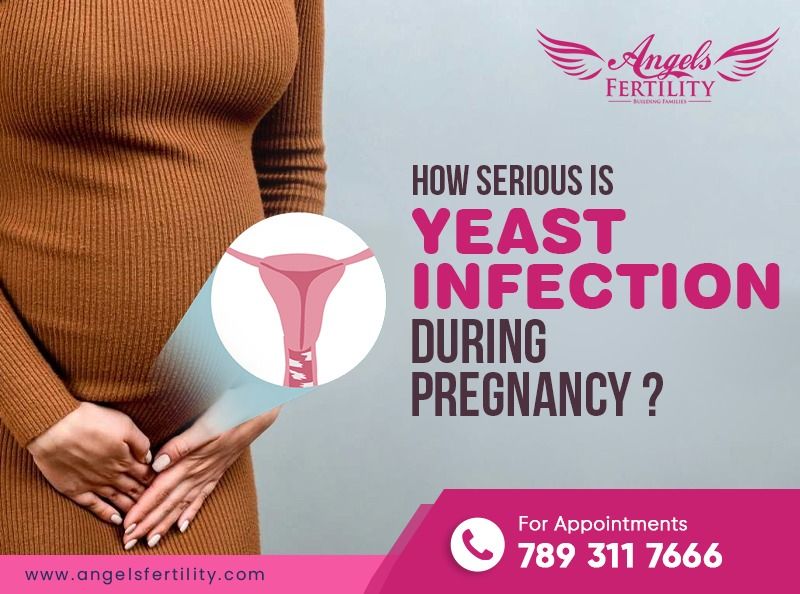Yeast infections, also known as candidiasis are common in women, especially during pregnancy. It is mainly caused by Candida albicans yeast. But other types of yeast such as candida glabrata and candida tropicalis can also cause yeast infection. During pregnancy, estrogen levels in the body increase and it cause imbalances of yeast and bacteria at the vagina.
If you experience a yeast infection during pregnancy, you do not need to worry much. In most cases, yeast infection does not cause any harm to you and your baby. Yeast infections can be treated safely during pregnancy without causing any complications.
How Do I Know If I Have a Yeast Infection During Pregnancy?
The following are some of the signs of yeast infection during pregnancy:
- Burning sensation during urination
- Pain and itching at the vagina
- Swelling, rash, or redness in the vulva
- Increase in vaginal discharge which is thick and white
If you experience any of these signs during pregnancy, consider visiting your gynaecologist to prevent the infection from progressing.
Causes of Yeast Infection
Yeast infection occurs when the fungi in the vagina increase rapidly. This leads to signs of yeast infection. Other common factors that can cause yeast infection are:
- Use of antibiotics, and birth control pills. The use of these medications can cause an imbalance of yeast and bacteria in the vagina
- Diabetes
- Conditions that affect the immune system such as HIV
During pregnancy, the pH balance in the vagina changes due to changes in hormone levels. This makes it a more favourable place for yeast growth.
Is Yeast Infection Serious During Pregnancy?
Yeast infections in women who are not pregnant with a healthy immune system do not cause any complications. In pregnant women also, yeast infection does not cause any serious complications. In very rare cases, the yeast infection may spread to your child.
Babies who develop yeast infection have it either in their mouth or in the diaper region. Yeast infection in the baby’s mouth is called thrush. If the infection is severe, it can harm the immune system of the baby and causes serious issues. The infection can spread through the body and can affect the baby’s breathing. Complications with a yeast infection are seen in babies who have other problems affecting their immune system.
How to Identify a Yeast Infection?
When you visit a doctor for diagnosis, he or she will collect a sample of your vaginal discharge using a simple and painless swab. The vaginal discharge will then be examined under a microscope. The lab technician or the doctor can easily identify yeast infection by a simple examination of the sample.
How to Treat Yeast Infections During Pregnancy?
OTC vaginal creams, ointment and suppositories can be used to treat yeast infection. But it is important to get confirmation from your doctor before using them. The use of vaginal creams is safe during pregnancy and they do not cause any side effects. The vaginal creams do not cause any birth defects or pregnancy complications. It might take around 10 to 15 days to completely clear the yeast infection during pregnancy.
You should not use any oral medications as they can cause birth defects and make pregnancy complicated.
However, the following tips can help you prevent yeast infection during pregnancy:
- Keep your vaginal area always clean and dry
- Use cotton panties to keep your vagina dry
- Avoid wearing tight pants
- After using the restroom, always wipe from the front to back
- Always change your dress immediately when it is wet. This helps to keep the vaginal area dry
- Ensure to keep your blood sugar levels in control
- Do not use hygiene sprays, douches
- Do not use coloured or perfumed toilet paper
Have Signs of Yeast Infection? Visit Angels Fertility Center
Angels Fertility Center is one of the best fertility centers in Hyderabad. We have a team of gynaecologists and fertility specialists who can help you deal with various problems during pregnancy. When you visit us for a yeast infection, we first diagnose and confirm whether the signs are due to yeast infection. Based on the results, we would prescribe creams and ointments. We have good staff whose utmost priority is to provide safety to our patients. To talk to one of our doctors, call us today.

